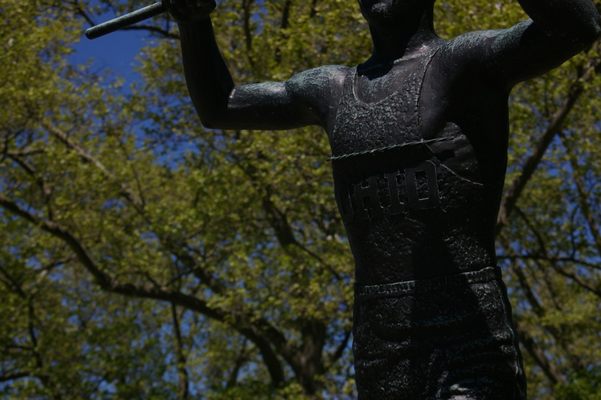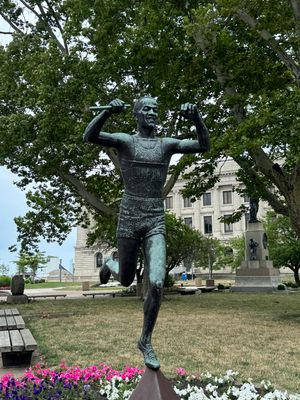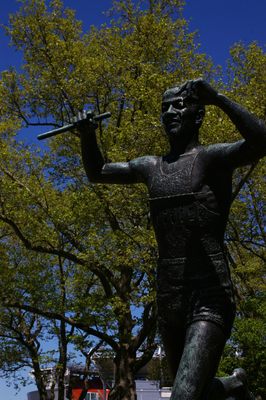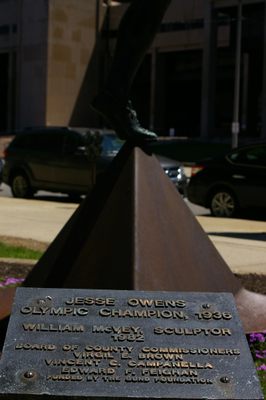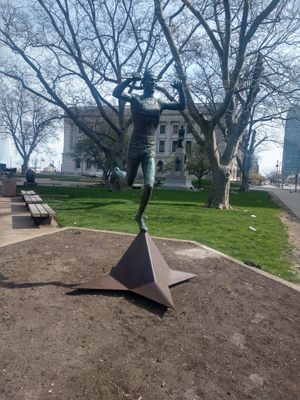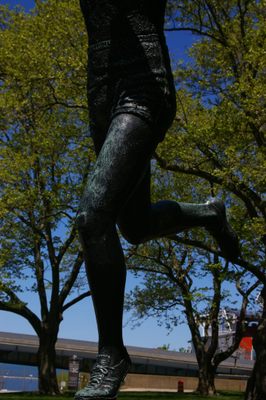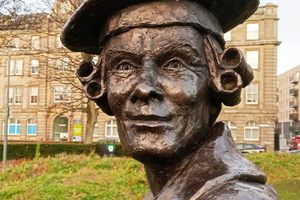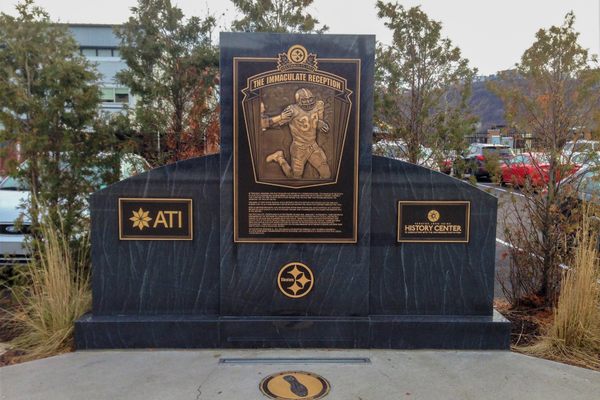About
The hero of Berlin’s 1936 Olympic Games flies across Fort Huntington Park, a relay baton triumphantly held above his head.
Jesse Owens was born in Alabama, but his family moved to Cleveland when he was nine years old to escape the deeply segregated South. His given name was James Cleveland, but when asked for his name at his new school he said “J.C.,” which stuck and soon became “Jesse.” He attended East Technical High School, where, as a senior, he tied the world record in the 100-yard dash.
One could say that his incredible results at the Olympics were unprecedented, but expectations were rightfully high when it came to Owens. He matriculated to Ohio State, where at the 1935 Big Ten track meet, he managed to set three world records and tie one more—all in 45 stupendous minutes. In Berlin, he showed the world (and Adolf Hitler) what he was capable of. He won four gold medals, in the 100-meter dash, 200-meter dash, the long jump, and the 4x100-meter relay. Hitler had hoped that the Games would be a showcase for the strength and supremacy of his new Aryan nation. Owens let that dream die, outperforming every other competing athlete.
Nazi Germany, in a cruel twist of irony, afforded Owens some freedoms than he could not access at home. In Germany, for example, he lived in the same hotels as the white athletes. Upon return, following a parade in celebration of Team USA’s accomplishments, Owens was barred from entering the reception at New York’s Waldorf Astoria hotel through the front door. He would also later say that, although it wasn’t caught on camera, Hitler shook his hand in congratulations. Back home, though he had accomplished what no athlete ever had before, he was not invited to the White House.
Following Owens' return stateside he tried for several years to find his niche: touring with a jazz band, helping to start a failed baseball league, and attempting a career as a sports commentator. Nothing seemed to pan out and he ended up working as a gas station attendant and running a struggling dry cleaning company. Later in life, however, things turned around. Owens was installed as a goodwill ambassador by the U.S. State Department and worked as part of the U.S. Olympic Commission. In 1979, he was awarded the Presidential Medal of Freedom.
This celebratory statue in Fort Huntington Park was installed in 1982. Cleveland is also home to one of the four saplings that Owens received with his four gold medals. It now flourishes as a much taller tree outside of Owens’ old high school building.
Related Tags
Know Before You Go
The statue is in the southwest corner of the park.
Community Contributors
Added By
Published
May 11, 2017

